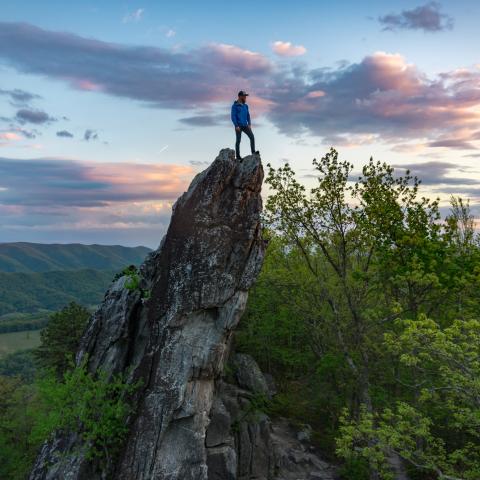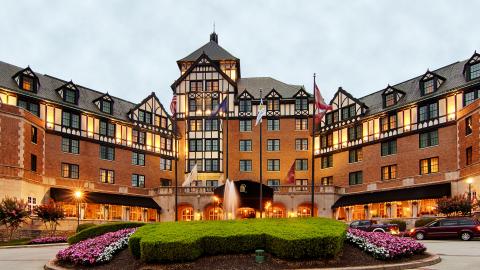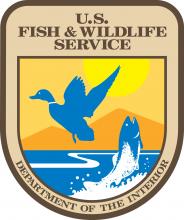The Annual Conference of the Southeastern Association of Fish and Wildlife Agencies is a forum for the exchange of ideas and critical information regarding the management and protection of fish and wildlife resources primarily in the southeast. The conference attracts over 500 representatives from state and federal agencies, citizens' organizations, universities, and private wildlife research groups, fisheries and wildlife scientists, agency enforcement personnel, and other natural resource-related organizations.
Any questions or comments regarding registration or the conference, please call the conference office at 802-865-5202 or via email at info@delaneymeetingevent.com.
The 75th Annual Conference was held at The Hotel Roanoke, located in the heart of downtown Roanoke, Virginia. The Hotel Roanoke is a Curio by Hilton managed property and is listed on the National Register of Historic Places.
Overnight accommodations were available at The Hotel Roanoke (110 Shenandoah Ave NE, Roanoke, VA 24016) at a reduced rate to SEAFWA Conference participants
SEAFWA negotiated a discounted group rate at The Hotel Roanoke (110 Shenandoah Ave NE, Roanoke, VA 24016) of $175 per room, per night, plus 13.3% tax. There were a limited number of rooms available at the federal per diem rate, but a valid federal government ID was required to get this rate.
We are pleased to announce that the following Special Symposia will be included in the program at the 75th Annual Conference. Read their overviews below.
Knowledge vs. Perceptions:
A Review of the Current Science and Public Perceptions of Our Most Pressing Wildlife Disease Issues
Contact Person: Michel Kohl, Assistant Professor / Wildlife Extension Specialist, University of Georgia; michel.kohl@uga.edu
Co-Organizers: Michel T. Kohl, Warnell School of Forestry and Natural Resources, University of Georgia; Elizabeth F. Pienaar, Warnell School of Forestry and Natural Resources, University of Georgia; Mark G. Ruder, Southeastern Cooperative Wildlife Disease Study, College of Veterinary Medicine, University of Georgia; Dave E. Stallknecht, Southeastern Cooperative Wildlife Disease Study, College of Veterinary Medicine, University of Georgia
Format: Invite Only
Overview: The COVID-19 pandemic impacted every facet of our everyday life; canceling soccer games, postponing family reunions, and transitioning our meetings to computer screens. Parallel to these changes has been an increased public awareness about the importance of infectious diseases, including those that involve and affect wildlife. For many people, the daily immersion in concepts of infectious disease epidemiology was likely the first time they had ever heard or thought about infectious diseases at a community/population scale. With this awareness, comes the potential to raise public awareness of – and support for – management of some of the most pressing wildlife and zoonotic diseases in the southeastern United States. In this symposium, we will cover multiple diseases that pose substantial management challenges: 1) white-nose syndrome, 2) rabbit hemorrhagic disease, 3) herpetological diseases (chytrid, ranavirus, salmonella), and 4) chronic wasting disease. For each of these diseases, speakers will present the current state of knowledge for the disease including: 1) a brief overview of the disease history and distribution, and 2) a summary of potential impacts, management concerns, and control options. Human dimensions experts will then present research on how the public and key stakeholders may be engaged in collaborative management solutions to mitigate disease risks. We will close with a panel discussion, providing the audience additional time to ask questions.
Theme: Wildlife disease; human dimensions; outreach and education;
The Southeast Conservation Adaptation Strategy (SECAS) and 30x30
Identifying Opportunities and Defining Outcomes in the Southeast
Contact Person: Mallory Martin, SECAS Coordinator, US Fish and Wildlife Service; mallory_martin@fws.gov
Co-Organizers: Ryan Boyles, Southeast Climate Adaptation Science Center; Nils Peterson, NC State University
Format: Invite Only
Overview: Through executive order last January, the Biden administration announced a national goal to conserve 30 percent of the nation’s lands and waters by the year 2030. What are the intended outcomes for this goal, especially in the Southeast? What are the appropriate roles for state fish and wildlife agencies, federal agencies, nongovernmental organizations, private landowners, and business sectors? How can existing actions and priorities contribute to the goal? These and other questions will be considered in a special symposium focusing on the opportunities and potential outcomes of the 30x30 national goal. As a formal committee of SEAFWA, SECAS provides a visible platform for this collaborative examination of appropriate roles, key definitions, and meaningful and realistic expectations. Opportunities around the 30x30 goal will be examined in the context of aligning efforts among a diversity of partners, organizations, and sectors to provide strategic linkage to the initiative. The symposium will feature a series of invited presentations examining conservation opportunities presented by 30x30, as well as specific approaches to overcoming barriers to action and optimizing conservation outcomes. Integrating existing conservation efforts and tools, including the Southeast Conservation Blueprint and the SECAS Goal Report, provides a framework to shape the direction and conservation accomplishments of the 30x30 goal. Following invited presentations and a high-level panel discussion, a facilitated working session will examine specific actions, roles, and responsibilities to help steer the implementation of 30x30. The overall goal of the symposium is to establish a collaborative approach to engagement, discussion, and action identification to help shape the implementation of 30x30 in the Southeast.
Theme: 30x30 conservation goal, land and water conservation, collaborative conservation
Climate Impacts on Wildlife Populations and Habitats
Contact Person: Elizabeth Hunter, Assistant Unit Leader, USGS Virginia Cooperative Research Unit; Virginia Tech; ehunter1@vt.edu
Format: Open Symposium
Overview: Continued acceleration of climate change poses challenges for the conservation and management of wildlife in the southeastern U.S. The Southeast is experiencing some of the highest rates of sea-level rise in the U.S., which threatens species that use beaches, marshes, and maritime forests. Increasing storm severity caused by warming temperatures also threatens coastal and inland habitats. Many broadly distributed species have their southern range limits in the southeast – as temperatures warm, these southern populations are more like to experience declines than their northern counterparts, posing challenges for southeastern management agencies in resource allocation decisions. Species that are able to adjust their phenology (e.g., migration timing or breeding seasons) to a warmer climate could pose challenges to the timing of management actions or harvest seasons. Management tools that are critical in the Southeast, such as prescribed burning, may become more challenging to implement in a warmer climate. Finally, growing human populations and development in the Southeast place increasing demands on existing habitats (including the increase in renewable energy production) and could limit the ability of species to adapt to a changing climate or track their climatic niches. These challenges are daunting, but managers and scientists are already taking steps to prepare for the future climate. Cross-boundary conservation planning can better facilitate species’ range shifts, and help agencies to efficiently allocate their limited resources. In coastal ecosystems, the application of natural and nature-based features can restore species’ habitats and make ecosystems more resilient to sea level rise and storms. Agencies are increasingly managing forest habitats with an eye towards climate adaptation to ensure that forests can withstand climate stressors many decades into the future. This symposium will feature presentations on the urgent challenges that climate change poses for wildlife in the southeast as well as potential strategies and solutions.
Theme: climate change, adaptation strategies
Invasive Aquatics Species
Research and Response
Contact Person: Mike Bednarski, Director of Aquatic Wildlife, Virginia Department of Wildlife Resources
Format: Open Symposium
Overview: Invasive aquatic species - whether they are zebra mussels, northern snakehead, invasive carp, or Alabama bass - continue to be one of the biggest issues facing managers in the southeast. This symposium will highlight relevant case studies in monitoring, control, and prevention, and provide the opportunity for discussing the successes and failures of different efforts.
Theme: Aquatics Invasive Species, Research, Field Investigations
Study of and Strategy for Engaging Wildlife Recreationists
Contact Person: Becky Gwynn, Deputy Executive Director, Virginia Department of Wildlife Resources
Format: Open Symposium
Overview: The Virginia Department of Wildlife Resources, like all state fish and wildlife agencies (SFWA), seeks to better understand how to best engage the diversity of wildlife recreationists in Virginia, promote their enjoyment of both wildlife and natural areas, and build their support for agency wildlife-related programs. This symposium will focus on research and responses by Virginia and other southeastern states to evaluate the conservation behaviors, motivations, and constraints associated with their conservation behaviors, level of awareness and understanding about the role and focus of SFWA, experiences with SFWA programs, services, and conservation efforts, satisfaction with SFWA programs and services, perceived ability of SFWA to serve the needs of all recreation groups, trust in SFWA to serve wildlife recreationists’ needs, willingness to support SFWA, preferred methods to do so, and expectations of that support. Research and responses will focus on such wildlife recreation groups as birders, general wildlife viewers, hunters, and anglers.
Theme: Understanding and Recruitment of Wildlife Recreationists
“Come Get Your Bear!”
Challenges and Solutions in Human-Bear Conflict Management
Contact Person: Nelson Lafon, Forest Wildlife Program Manager, VA Dept Wildlife Resources; Nelson.lafon@dwr.virginia.gov
Co-Organizers: Katie Martin, VADWR; Betsy Stinson VADWR; Jordan Green, VADWR; Seth Thompson, VADWR; Sarah Peltier, VADWR
Format: Open Symposium
Overview: Human population growth in rural areas and black bear adaptation to human-dominated environments, including at the suburban/urban interface, present challenges to the public, local governments, and wildlife agencies. Agencies and stakeholders are confronted with seeking a balance between public and agency responsibilities to mitigate human-bear conflict. Direct costs associated with human-bear conflict can be significant and include property and agricultural damage, expenses related to modifying municipal waste management, and agency investment in bear management equipment, staff time, and cost-share partnerships with public entities. Indirect but meaningful costs may include reduced public tolerance for black bears, erosion of public confidence in wildlife agencies, compromised fitness of bears accessing anthropogenic attractants, waste of a wild resource, and a diminished public view of black bears as part of our wild heritage. Agencies and public and private partners continue to innovate and experiment with approaches to overcome challenges presented by human-bear conflict in an effort to optimize outcomes for conservation and stakeholders. This symposium will draw on the experience and expertise of black bear managers to provide a forum to share approaches, successes, and failures in conflict management, and stimulate thinking about cost-effective solutions to human-bear conflict management and its interface with black bear conservation. Our goal is to assemble an array of presentations on current and future research and efforts in conflict management for a half-day symposium. The symposium is open to accepting presentations from the general call for abstracts.
Theme: Human-Bear Conflict, Agency-Public Partnerships, Black Bear Management, Stakeholder Responsibility
Silver
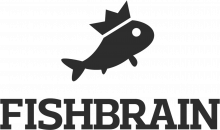


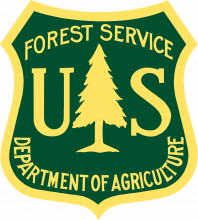
Bronze
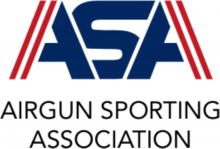
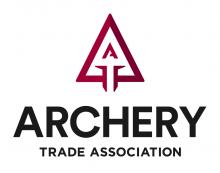
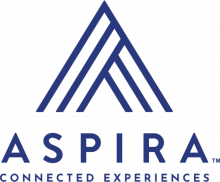
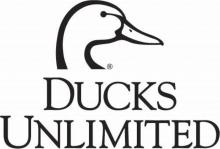



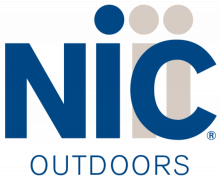

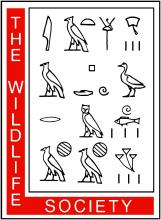


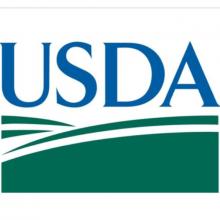

Special Event


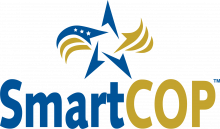
| Darin Moore | Chair | darin.moore@dwr.virginia.gov |
| Tom Wilcox | Vice Chair | tom.wilcox@dwr.virginia.gov |
| Eddie Herndon | Marketing, R3 & Communications Program Track Lead | eddie.herndon@dwr.virginia.gov |
| Alex McCrickard | Marketing, R3 & Communications Program Track Lead | alex.mccrickard@dwr.virginia.gov |
| Matthew Overstreet | Wildlife Program Track Lead | matthew.overstreet@dwr.virginia.gov |
| Margaret (Margi) Whitmore | Fisheries Program Track Lead | margaret.whitmore@dwr.virginia.gov |
| Hunter Hatcher | Fisheries Program Track Lead | hunter.hatcher@dwr.virginia.gov |
| Sarah Colletti | Poster Session | sarah.colleti@dwr.virginia.gov |
| Captain Tony Fisher | Law Enforcement Program Track Lead | tony.fisher@dwr.virginia.gov |
| Sergeant Tim Dooley | Law Enforcement | tim.dooley@dwr.virginia.gov |
| Lindsay Kagalis | Conference Communications & Graphics | lindsay.kagalis@dwr.virginia.gov |
| Tim Tassitano | Marketing & Graphics | tim.tassitano@dwr.virginia.gov |
| Chandra Williams | AV & IT Committee | |
| James Jones | AV & IT Committee | |
| George Braxton | Minorities in Natural Resources Conservation Committee | george.braxton@dwr.virginia.gov |
| Sergeant Mike Hill | Minorities in Natural Resources Conservation Committee | mike.hill@dwr.virginia.gov |
| Ray Hudgins | Minorities in Natural Resources Conservation Committee and Student Activities Committee | ray.hudgins@dwr.virginia.gov |
| Lisa Fore | Registration Committee | lisa.fore@dwr.virginia.gov |
